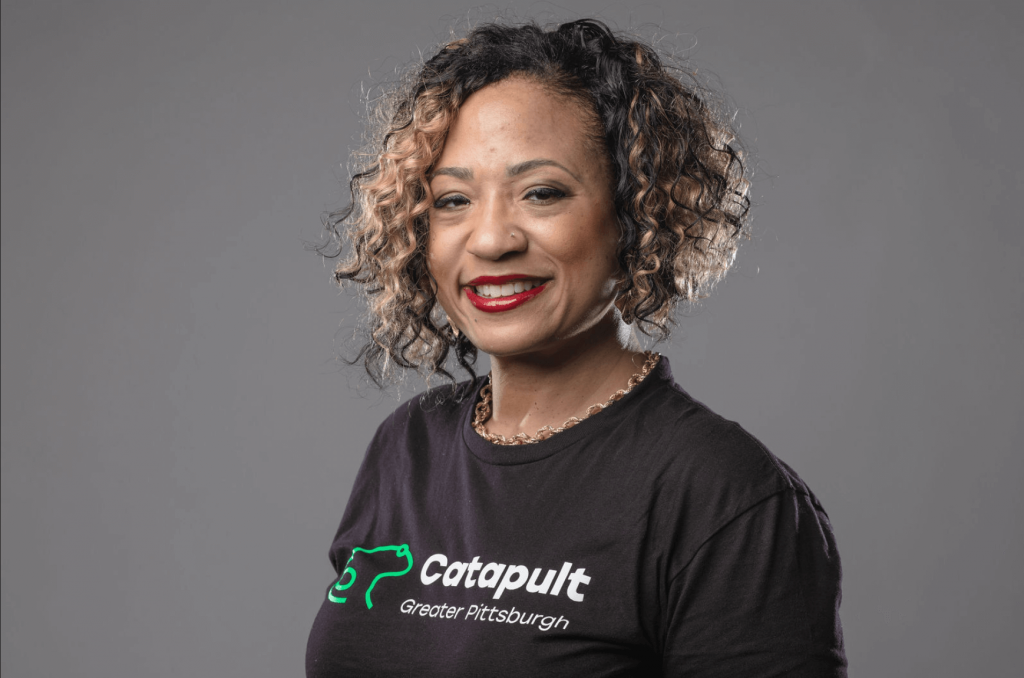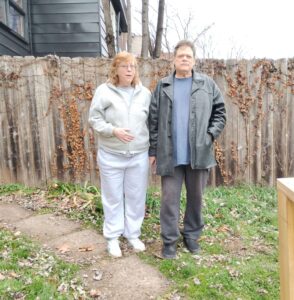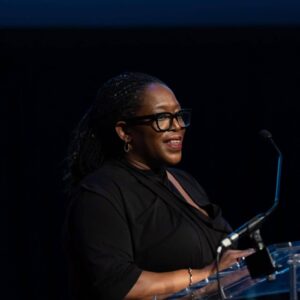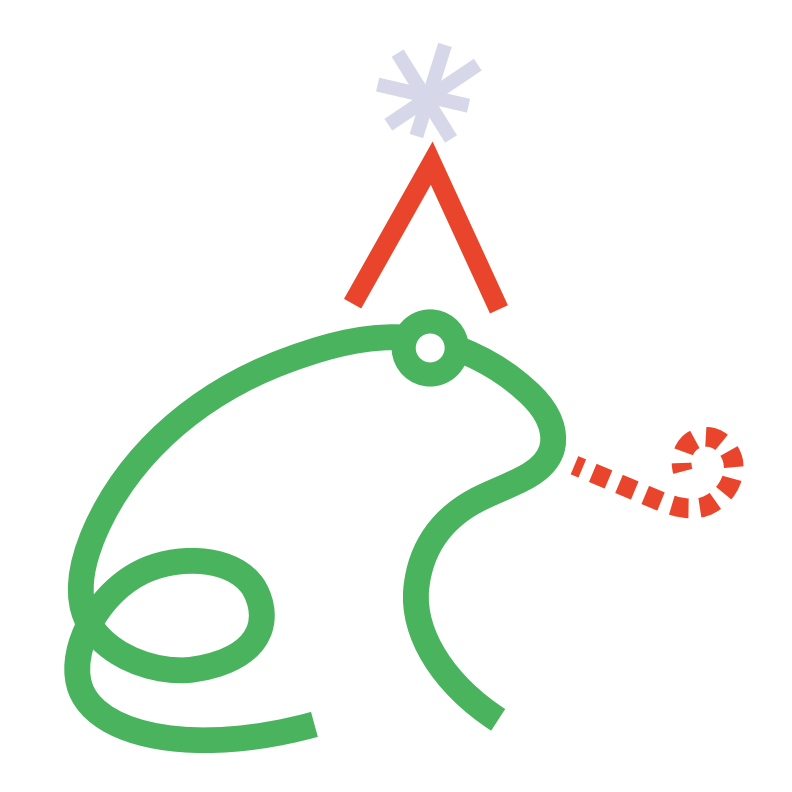We are thrilled to welcome a new member to the Catapult executive team. Say hello to Tanika Harris, a servant leader with over two decades of experience in the corporate and non-profit sectors. She most recently served as Director of Communication and Community Relations at the Urban Redevelopment Authority of Pittsburgh and is a founding partner of ACT3 Consulting Partners.
As a proud single mother and grandmother who grew up in Pittsburgh’s Garfield Heights Housing project, Harris’ work is informed by her personal journey, which gives her a deep sense of empathy and understanding for the people Catapult serves. Tanika is the first in her family to achieve higher education, and she holds multiple degrees and certifications from Point Park University in organizational leadership and the Community College of Allegheny County in entrepreneurship and business management. Driven by a belief in the transformative power of investing within communities of place, interest, and action (more on that below), she takes a heart-driven approach to renewing communities.
Dive into Tanika’s story and find out what she’ll be doing at a Catapult in our Q&A below.
Catapult Q&A with Tanika
Where does your story start?
I’m the baby of six. My mother was a single parent, and we lived in the Garfield Heights Housing project. One of the things I always talk about is that I didn’t know I was poor until somebody told me. My mother did her very best, but she was dealing with her own trauma while trying to raise this flamboyant, boisterous, young person that I was.
I was always in musical theater, trained in opera, and took piano lessons from an early age. I also grew up in a highly religious home, religious but not spiritual. That’s an important part, because that was my foundation. It took me years to understand and figure out what religion and spirituality truly meant.
I reckoned with knowing that it’s important to be good to all people, but then figuring out what that actually looks like in practice. To do good, act justly, walk humbly, and love — that’s the ethos of who I am. I’m called to be an agent of change for the least of these, and the least of these looks different everywhere you go.
Community is also huge for me. Growing up in the Garfield Heights Housing Project, we had a geographical community, but as I grew older, I learned what community meant in a holistic sense, which is a community of place (our geographical location), a community of interest (where we have a shared belief), and a community of action (where you’re rallied around a particular cause). As I’ve gotten older, I’ve learned to embrace these various community groups.
“To do good, act justly, walk humbly, and love — that's the ethos of who I am. I'm called to be an agent of change for the least of these, and the least of these looks different everywhere you go.”
Tanika Harris
How did you start working in community development?
When I was 17, I moved to New York. I had just graduated from high school and had a young baby. I went to the performing arts school in Pittsburgh, and my mother said, “I’m going to keep the baby. You go to New York for theater.” I completed one year at Marymount Manhattan College, but it was really hard being away from my daughter, so I came home, worked for a little bit, and then moved back to New York with my daughter to finish school. By that point, I had another child. So I was 25 years old with two children in New York. I did one off-Broadway show, which did not pay a lot, and I said, “Is this really what I need to do?”
I recognized that I needed to earn a living, so I started temping at a temp agency. Eventually, I came across a receptionist opening for the General Board of Global Ministries, the relief and development agency of The United Methodist Church. That’s where I was introduced to community development and had the opportunity to meet many different types of people. Within Global Ministries, there was one Black woman named Ruth Lawson.
She was looking for an administrative assistant, and I interviewed with her. My interview was two and a half hours long. We talked about everything. I found out that she started out in the arts and was a single mom as well. We had so much in common. I was honest. I said, “I don’t know what it means to be an administrative assistant, but I will work hard. And if you train me, I’m teachable.” It was the best thing that ever happened to me. She trained and taught me everything. I know it was all a God thing because I was in the one department that had the only Black female leadership.
How did you transition from an administrative assistant to a leadership role?
I started off as the receptionist, moved to being an administrative assistant, and then when Ruth retired, I took her position as Executive Secretary of Community Development. I became the youngest executive and still had no degree. I was there for 12 years, running a nationwide community development department and overseeing 40 United Methodist churches throughout the country. It was a dream job, but in the midst of it, I was a horrible mother. I wasn’t around.
My focus was on making sure I could pay the rent every month, pay their tuition for Catholic school, pay for a vehicle, pay for after-school care. I was trying to give them what I didn’t have, because what we didn’t have was money, though my mother was always there and had time. That’s where it all started, and eventually, I began to connect my many lived experiences together.
Tanika's Community Focus
Place, Interest, and Action
- Community of place = geographical location
- Community of interest = where we have a shared belief
- Community of action = where you're rallied around a particular cause
What made you move back to Pittsburgh?
I never thought I would come back to Pittsburgh. I moved back, because I was in an abusive relationship. I didn’t have the language for it at the time, but I knew I needed to do something. Also, I recently had my third child and discovered that he had Albinism. At the time, the doctor told me that it was almost like a death sentence and that he would never have a “normal” life.
My sister suggested I take him to see an eye doctor here in Pittsburgh because she heard that people with Albinism are legally blind. That’s what brought me back to Pittsburgh, but I was still working at my job in New York, doing remote work before remote work was a thing. Then, shortly after I came home, my mother was diagnosed with stage four colon cancer. That’s when my move became permanent.
How have your experiences in community development and faith prepare you for your current role at Catapult?
Tanika started working at the Hill Community Development Corporation and served as the Director of Ministry for Macedonia Church of Pittsburgh.
It’s like everything has come to a head. The pain, the suffering, the excellence, the highs, the lows — it all makes sense now. Throughout my community development journey, I’ve learned things about myself. I’ve learned things that I could have done differently and all of that has made me hypersensitive to really doing good work, not doing work for people to recognize, but doing good work and making a true impact. My “why” has shifted now.
Yes, I want to be able to make a living, but now my why is about making sure that my communities — all of my communities — are being served well.
It took me 27 years to finish my undergraduate degree, and now I’m working on my MBA. I tell you that, because that’s also a part of who I am. The beauty of my resume is that I’ve had so many great experiences with really incredible and powerful organizations, and now I have the piece of paper that “qualifies” me. If it were the other way around, my experiences would’ve been different.
My journey was painful at times, but it’s shaped my worldview in a way that I understand so many different types of people and situations. I have empathy, and so I lead with compassion and a level of understanding that many may not have. Now I’m able to use myperspective, relationships, information, and contacts from everywhere I’ve worked and been to do this job.
In your TedTalk with Maisha Howze, you discuss the importance of doing “heart work.” What is heart work?
Heart work is hard work. It’s the work where you don’t see an immediate return on your investment. It’s doing the work knowing that you may not get credit and it may cause some discomfort, but you’re doing it because it’s the right thing. Heart work is also doing something and doing it scared, when others aren’t doing it because they’re maintaining the status quo; they’re doing what’s easy and clean. Sometimes heart work is also lonely. Heart work is what we’re doing at Catapult.
“Heart work is doing something and doing it scared, when others aren't doing it because they're maintaining the status quo; they’re doing what's easy and clean. Sometimes heart work is also lonely. Heart work is what we're doing at Catapult.”
Tanika Harris
What exactly will you be doing in your role at Catapult?
As a member of Catapult’s leadership team, I am entrusted with a strategic role. I will focus on establishing and managing external partnerships using a multi-faceted communication approach. This strategic task will drive Catapult’s expansion by identifying and building relationships with key stakeholders and organizations that align with our mission and growth goals. I will also manage and nurture long-term relationships with our partners and represent Catapult in the industry.
Additionally, I will oversee strategies to enter new markets, ensure successful growth, and align partnership efforts with our strategic goals. I am committed to building upon the current rock star team to help drive innovation and establish Catapult as an industry leader!
Is there anything else you’d like to share?
The fact that Tammy trusts me with her vision and her team — the people that she loves and cares about — means so much to me. I’m glad I was in the public sector for some time, because I can take everything I’ve learned there and implement some things here at Catapult. I’m also now on the Housing Opportunity Fund board where I can speak for my community, and as a representative of Catapult, transparently. I’m so grateful for this opportunity, and I’m so excited to see what’s next.





